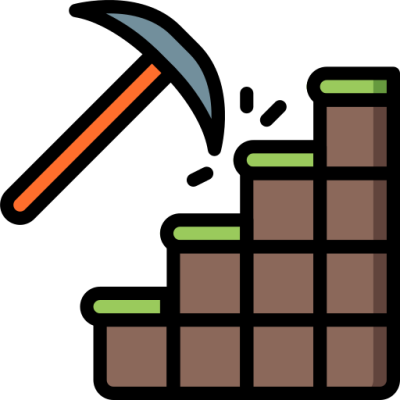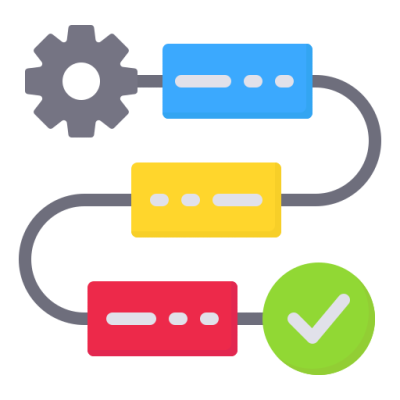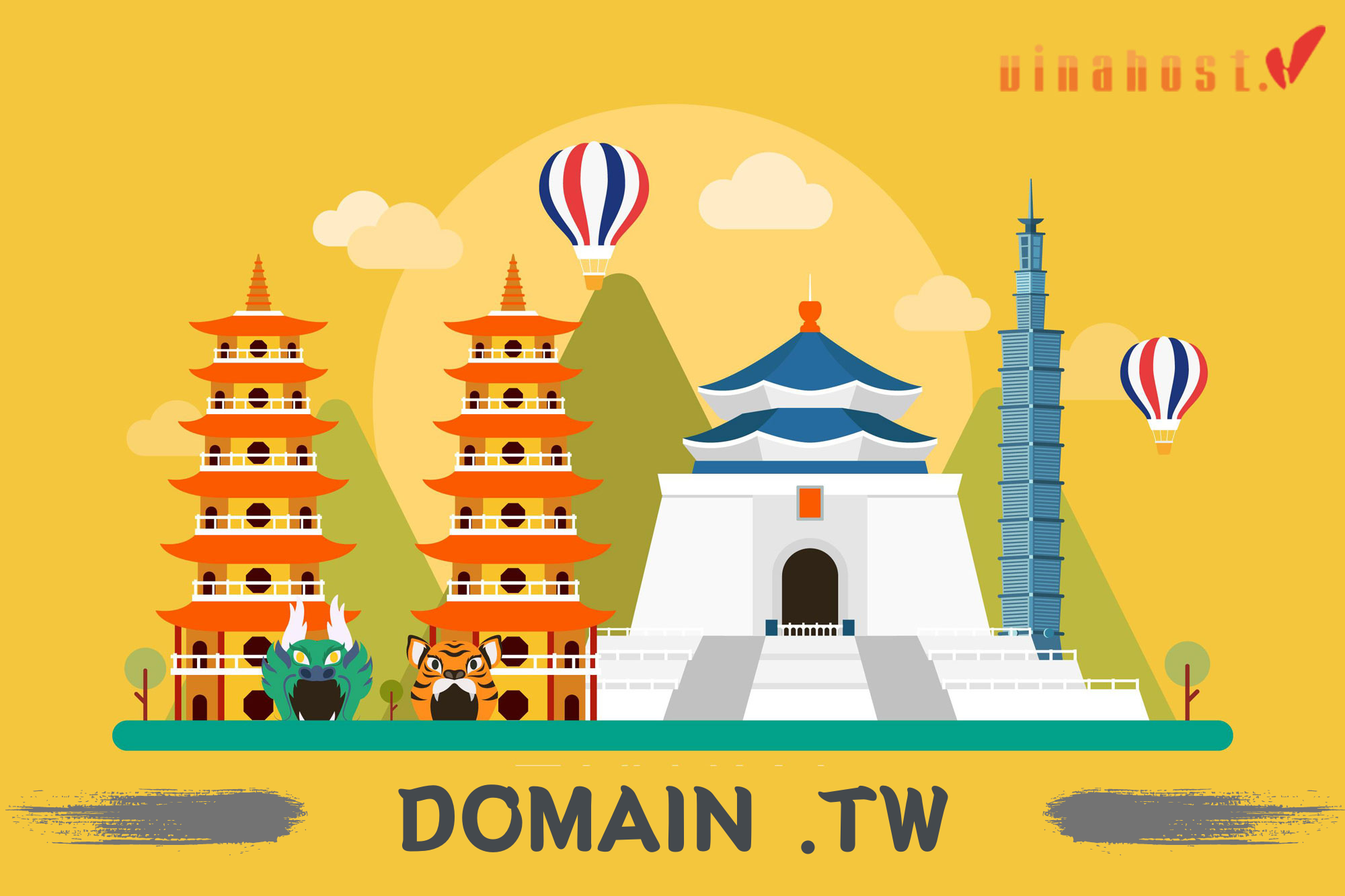What is Domain Flipping? Domain flipping is buying a domain name at a low price and reselling it at a higher price to make a profit. This process typically involves purchasing domain names through auctions or expired domain listings, then reselling them at a higher price. This digital investing strategy requires you to research the market, analyze trends, and make strategic purchases. Let’s join VinaHost to find more about domain flipping through the following article.
1. What is Domain Flipping?
Domain name flipping is the activity of buying and selling domain names to make a profit.
To be successful in this field, you need to find low-priced domain names after thorough research, then sell them at a higher price. The goal is to identify domain names with great potential and market them to interested buyers. Some investors hold onto domain names for the long term to maximize profits, while others focus on selling quickly for a profit in a matter of weeks or months.

Also Read: What is a Domain Extension? | How to Choose a Domain Extension
2. Types of Domains Worth Flipping
Here’s more detailed information about each type of domain name worth buying:
2.1. Brandable Domains
These are unique and memorable domain names, often created to reflect a brand’s identity. Usually do not contain keywords directly related to the product or service, but instead create a strong feeling or image with potential customers.
2.2. Keyword-Rich Domains
These are domain names that contain keywords or phrases commonly searched for on search engines. They can help improve SEO and attract targeted traffic.
Also Read: What is Domain Masking? | Everything you need to know
2.3. Expired Domains
These are domain names that were previously registered but not renewed. They may have accumulated traffic, backlinks for SEO value, making them attractive to invest in.
Also Read: What are expired Domains? | How to check domain expiration?
2.4. Short and Memorable Domains
These are domain names that are easy to remember and type, suitable for branding and marketing. Short domains like “xyz.com” or “abc.io” are often popular because of their high recall and shareability.
2.5. TLD Diversification (e.g., .com, .io, .co)
This is the strategy of buying domain names with different extensions (TLDs) like .vn, .com, .net, .org, .io, .co, etc. Each TLD can appeal to a different audience or industry. This diversification helps hedge risks and benefit from different market trends. For example, “companyname.io” attracts tech startups, while “companyname.co” may be suitable for companies focused on community or collaboration.
Successful domain flipping often requires thorough market research, understanding trends, and choosing the right time to sell to maximize profits based on the value and demand of each domain name.
Also Read: What is a Top Level domain? | Everything You Need to Know TLDs
3. The advantages of Domain Flipping
Domain flipping brings many benefits to participants:
- High profit potential: One of the main advantages is the significant profit potential. Successful buyers can purchase domain names at low prices and resell them at higher prices, sometimes up to millions of dollars, depending on market value and demand.
- Low initial investment: Compared to many other forms of investment, domain flipping requires a low initial investment. You can buy a domain name for under $100, making it affordable for individuals and small businesses.
- High flexibility: Domain flipping can be done from anywhere with an internet connection. This provides flexibility in when and where to work, as well as the ability to scale according to goals and available time.
- Scalability: As you gain experience and resources, you can expand your domain transfer operations. This can include managing a larger portfolio of domains, leveraging tools and services to systematize the process, and expanding into different domain types or markets.
- Passive Income: Some domain investors focus on buying domain names to generate passive income from advertising or affiliate marketing. This can provide a steady stream of income while waiting for the right time to sell the domain name for a high profit.
- Creativity and strategy: Domain flipping activities require creativity and strategy. Analyzing undervalued domains, predicting future trends, and understanding buyer needs are important skills to increase your chances of success.
- Investment Diversification: This is a way to diversify in the digital asset space. Domain names can be viewed as digital real estate, offering a different form of investment than traditional stocks or real estate.
Overall, domain flipping can be a profitable business for those prepared to invest the time to research, develop evaluation skills, and stay informed about opportunities and trends.

4. The Disadvantages of Domain Flipping
Domain flipping can be beneficial, but it also comes with the following risks and challenges:
- High Risk: Domain flipping activities are highly dependent on prediction and success is not guaranteed. The value of a domain name can be heavily influenced by market trends, buyer demand, and other unpredictable factors. Investing without thorough research can lead to losses.
- Market saturation: The domain name market is fiercely competitive and there are many domain names available for sale. Finding low-priced domain names for resale requires effort and skill in market analysis.
- Variable Holding Costs: Holding a domain name for a long time may incur costs such as annual renewal fees. If not sold quickly, these costs can reduce potential profits.
- Legal issues: Domain flipping is sometimes legally complicated, such as intellectual property rights violations or domain name disputes. Careful due diligence is necessary to ensure the domain name does not infringe on existing rights.
- Market Fluctuations: Demand and value of domain names may fluctuate according to technology trends and consumer preferences. Accurately predicting these fluctuations is challenging and can impact the profitability of domain transfer operations.
- Requires a lot of time: Successful domain flipping requires time and effort to effectively research, acquire, market and sell domain names. This is not suitable for individuals who want quick profits or passive income without first investing in learning and strategic development.
Addressing these challenges requires a strategic approach, ongoing education on market trends, and adherence to ethical standards in domain name acquisition and sale.
Also Read: What is Domain Privacy? | Do you need Domain Privacy?
5. How to Flip domain names
To effectively flip a domain name, you need to follow these steps:
5.1. Identify Lucrative Domains
Look for valuable domain names such as brand names, domains containing important keywords, expired domains with high traffic or SEO value, short, easy-to-remember domains and a variety of TLD types.
5.2. Research and Availability domain Check
Conduct thorough research to evaluate market demand, trends and potential customers for the domain name you are interested in. Use domain name availability checking tools to confirm its availability for registration or acquisition.
5.3. Evaluate the Domain’s Worth
Evaluate the value of the domain name based on keyword popularity, market demand, brand value, SEO index (if any) and resale potential. Domain valuation tools and sales history data can assist in this process.
Also Read: What is Domain Backorder? | Everything you need to know
5.4. Secure Your Domain – Registration and Acquisition
Once you have identified a promising domain name, register or purchase it through domain registration services or auction platforms. Be sure to complete this process promptly to protect your domain name.
5.5. Find the Right Buyer – Marketing and Selling Strategies
Develop marketing strategies to attract potential buyers:
- Market research: Identify the right potential buyers and related industries.
- Outreach: Contact directly via email or via domain name market platforms.
- Listing: Posting domain names to domain name markets, auction platforms or buying and selling forums.
- SEO optimization and branding: Make sure the domain name is optimized with relevant keywords and displays well on search results.
- Negotiation: Willing to negotiate selling price with buyers.
By following these steps and staying up to date on market trends, you will have a better chance of successfully selling your domain name and turning a profit.
Also Read: What is a Domain Registrar? | Function of a Domain Registrar
6. FAQs
6.1. What are some of the best tools for finding valuable domains?
To find and evaluate valuable domain names, domain flippers often use the following tools and resources:
Domain Market
- GoDaddy Auctions: Popular platform for buying and selling domains with many options.
- Namecheap Marketplace: Offers new registrations and auctions for domain names with diverse filtering options.
- Sedo: Large domain name marketplace with auction and brokerage services.
Domain Name Generator
- Lean Domain Name Search: Generate domain name ideas based on keywords and check availability.
- NameMesh: Suggest domain names across multiple categories and filters to check availability.
Domain analysis and evaluation tool
- DomainTools: Provides domain research and monitoring tools, including WHOIS data and ownership history.
- Estibot: Evaluates domain names based on keyword popularity, search volume and length.
Keyword and SEO tools
- Google Keyword Planner: Identify popular keywords for the domain.
- Moz Key Explorer: Provides keyword research and SEO analysis tools.
Expired Domain Marketplace and Tools
- ExpiredDomains.net: List of expired domains with information on domain age, traffic, and backlinks.
- FreshDrop: Tracks domains that are about to expire and provides filters to find valuable domains based on multiple criteria.
Combining these tools helps domain flippers identify and evaluate potential domain names for acquisition or investment. Each tool has a special role in the process of finding, evaluating and optimizing the value of domain names.
6.2. How much money can you make from domain flipping?
The amount of money you can make from transferring domains depends on many important factors:
- Quality and value of the domain name: High-quality domain names, such as names that are short, easy to remember, or contain popular keywords, often have strong demand in the market and can be sold with prices ranging from a few hundred dollars to millions of dollars for premium domains.
- Market trends and timing: Fluctuations in market trends, demand from industries and economic conditions can significantly affect the resale value of a domain name. Some domain names can increase in price quickly while others may require longer to find the right buyer.
- Investment and strategy: People who are successful in selling domain names often invest seriously in researching, acquiring, and marketing domain names effectively. The strategy of buying domains at a low price and selling them at a high profit is something they often employ to maximize profits.
- Skills and experience: Experience, deep understanding of market dynamics, negotiation skills and understanding of buyer psychology are important factors that help domain movers become successful.
While there are cases of significant success with revenues from domain name sales reaching into the millions of dollars, achieving this requires realistic expectations and a willingness to invest time and effort. Beginners can start with smaller investments and gradually expand their operations as they gain experience and gain more confidence in the domain flipping market.

Also Read: What is a root domain? | Why does a root domain matter?
6.3. Are there any legal risks associated with domain flipping?
Domain flipping can involve some legal risks that people should be aware of:
- Trademark Infringement: Registering or selling a domain name that violates an existing trademark may result in legal action from the trademark owner. Before buying or selling a domain name, thorough trademark research is important to avoid legal disputes.
- Squatting: The act of hijacking a domain name to take advantage of another’s brand is illegal and can result in serious legal penalties, including loss of domain name and fines.
- Domain name disputes: There may be disputes over domain name ownership, such as claims of unfair competition or domain name registration in bad faith. These disputes often have to go through arbitration proceedings such as the Uniform Domain Name Dispute Resolution Policy (UDRP), which is time-consuming and wasteful.
- Consumer protection laws: Consumer protection laws may apply to the sale of domain names. Failure to provide accurate domain name information can lead to legal issues.
- Legal Agreement: Drafting sales contracts or domain name brokerage contracts should be done carefully to protect the interests of the parties involved.
To minimize legal risks, those participating in domain flipping should:
- Research thoroughly to ensure the domain name does not violate any trademarks.
- Use reputable domain registrars and marketplaces that comply with legal requirements and industry standards.
- Maintain clear records of domain name purchases and sales.
- If necessary, seek legal advice to resolve complex issues related to disputes or high-value domain names.
By complying with legal regulations and working carefully, domain flipping participants can minimize legal risks and focus on exploiting profitable opportunities in the name transfer market.
Also Read: What is Domain Squatting? | Everything you need to know
6.4. Where Can I Buy and Sell Domains?
Some options for you:
Main market
- GoDaddy Auctions: Popular platform for buying and selling domain names via auction or instant purchase.
- Namecheap Marketplace: Offers both new registrations and domain name auctions, with multiple filtering options.
- Sedo: Large marketplace with auctions and domain brokerage services.
Specialized auction platform
- Flippa: Famous for buying and selling websites and domain names through auctions and fixed prices.
- Afternic: Integrated marketplace to sell domain names and provide them to partners like GoDaddy.
Social media and online communities
LinkedIn, Twitter and Facebook groups dedicated to domain investing can also be places to buy and sell domains, but be careful when verifying transactions.
When choosing a platform to buy and sell domain names, you should consider factors such as service fees, user interface, customer support, and reputation in the domain name industry. In particular, comply with legal requirements and ethical principles to protect your investment and ensure smooth transactions.

Additionally, we also provide:
6.5. How long does it typically take to sell a domain name?
Factors affecting domain name sale time
- Domain name quality and demand: High quality domain names, such as names that are short, easy to remember, or contain popular keywords, are often in high demand and can sell faster than generic domain names.
- Market Conditions: Fluctuations in market trends, industry demands, and economic conditions may affect the timing of domain name sales. Domain names that fit current trends or are in industries with high demand often sell faster.
- Marketing and advertising strategy: Targeting through multiple platforms, SEO optimization, and targeted marketing can help shorten sales time.
- Pricing strategy: Setting reasonable prices based on market value and demand can attract buyers faster. Inappropriate pricing can prolong the time it takes to find a buyer.
- Negotiation and matching with buyers: The process of negotiating and finding the right buyer can affect the timing of the sale. Some transactions may be quicker for a willing buyer, while others may require more time and negotiation.
In general, domain names that are competitively priced and in line with market trends can usually sell in a few weeks to a few months. However, premium domains may take longer or require a targeted marketing strategy to reach potential buyers. It’s important for domain sellers to be patient and flexible to maximize their chances of a successful sale.
Also Read: What is Registry Lock? | Protect Domain with Registry Lock
7. Conclusion
In conclusion, domain flipping can be a profitable venture for those who invest in research and strategic purchasing. By understanding market trends and effectively marketing domains, significant returns are possible. However, it’s essential to be mindful of the risks and legal considerations. With careful planning and persistence, anyone can succeed in the dynamic domain flipping market. Find out more articles at our Blog and don’t hesitate to contact us for support:
- Email: support@vinahost.vn
- Hotline: 1900 6046
- Livechat: https://livechat.vinahost.vn/chat.php
What is Domain Hijacking? | Everything you need to know
What is a Parked Domain: What You Need to Know
What is a Subdomain? Exploring the Difference Between Domains & Subdomains




















